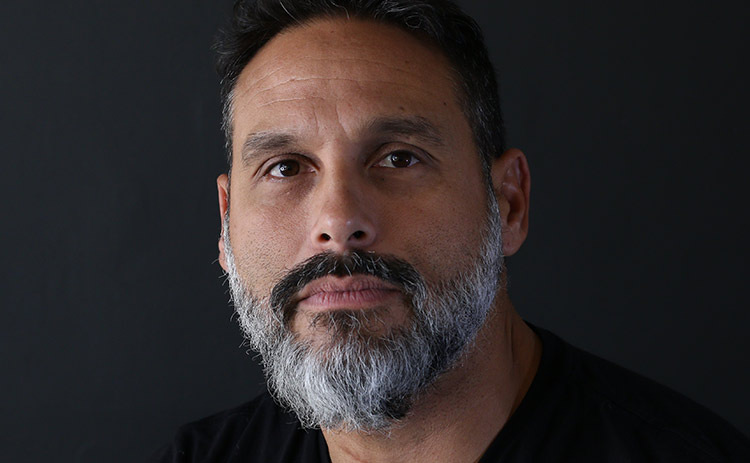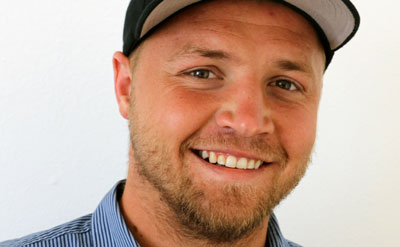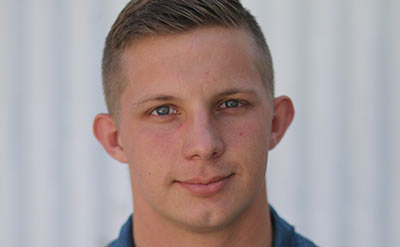Action Based Induction Therapy uses various team based drills adapted from Navy SEAL training exercises to treat addiction. ABIT takes place three days each week on the beach and demands high-level engagement of the prefrontal cortex. ABIT helps rebuild, repair and strengthen the prefrontal cortex. By using the brain’s ability to adapt to stimulus, ABIT helps clients build new neural pathways. ABI Therapy uses team exercises that require the participant to use their prefrontal cortex over and over again. This repetition can be compared to weight training for the brain. This strengthening gives men struggling with addiction a much better chance at staying connected to others which, in turn, greatly enhances the probability of them staying sober.
• Leadership & Teamwork Skills
• Improved Decision Making
• Ability to Regulate Emotions
• Stronger Prefrontal Cortex
• Interpersonal Attunement
Action Based Induction Therapy consists of various team based drills adapted from Navy SEAL training exercises. ABIT takes place three days each week on the beach and demands high-level engagement of the prefrontal cortex. ABIT helps rebuild, repair and strengthen the prefrontal cortex. By using the brain’s ability to adapt to stimulus, ABIT helps clients build new neural pathways. ABI Therapy uses team exercises that require the participant to use their prefrontal cortex over and over again. This repetition can be compared to weight training for the brain. This strengthening gives men struggling with addiction a much better chance at staying connected to others which, in turn, greatly enhances the probability of them staying sober.
Treating addiction is a complicated process involving addressing everything from social and psychological to biological issues — all of which play a part in keeping men sick. All of these variables are interdependent and can be linked to one very critical area of the brain called the prefrontal cortex. This part of the brain is responsible for mood regulation, interpersonal connections, impulse control, forward thinking, morality, empathy and other critical human qualities. When a person is using drugs, this part of the brain stops functioning properly. This kicks off the vicious cycle of self destruction that we commonly know as addiction.
• Leadership & Teamwork Skills
• Improved Decision Making
• Ability to Regulate Emotions
• Stronger Prefrontal Cortex
• Interpersonal Attunement
Learn how Tree House Recovery uses US Navy SEAL BUD/S training in ABIT.
Learn how our physical empowerment program helps return men to a natural and healthy state.

With a rich and impressive history as a college athlete, a US Navy SEAL Team member, and a triathlete, Neil most certainly has proven that he can “walk the walk.” The men at Tree House, under Neil’s guidance and mentoring, explore and discover untouched and untapped depths of inner strength and physical health.


Treating addiction is a complicated process involving addressing everything from social and psychological to biological issues — all of which play a part in keeping men sick. All of these variables are interdependent and can be linked to one very critical area of the brain called the prefrontal cortex. This part of the brain is responsible for mood regulation, interpersonal connections, impulse control, forward thinking, morality, empathy and other critical human qualities. When a person is using drugs, this part of the brain stops functioning properly. This kicks off the vicious cycle of self destruction that we commonly know as addiction.
“The lessons I learned in Experiential have been essential tools in bringing our team together and showing me that I’m always capable of achieving more.” –
Will B, Graduate
With a rich and impressive history as a college athlete, a US Navy SEAL Team member, and a triathlete, Neil most certainly has proven that he can “walk the walk.” The men at Tree House, under Neil’s guidance and mentoring, will be able to explore and discover untouched and untapped depths of inner strength and physical health.
The limbic system and prefrontal cortex are engaged continuously with each other to shape our actions. The limbic system craves instant gratification, while our prefrontal cortex delays or denies these impulses when necessary. For people with issues related to addiction, the limbic system dominates their mental state. As a result, they are usually more emotional and have low impulse control.
Because the limbic system dominates their mental state, people who struggle with addiction often have a prefrontal cortex that lacks functionality. In addition to low impulse control, this can cause problems in other domains due to the many functions the prefrontal cortex is intended to perform — especially where it concerns interpersonal relationships. Dr. Dan Siegel hypothesized that there are nine critical functions of the prefrontal cortex including empathy, morality, and communication that, when dysregulated, creates a poor social animal. For people with addiction, a lack of meaningful social connections increases the chances of using, abusing, and relapsing. TreeHouse Recovery, seeks to strengthen the prefrontal cortex as a means to sobriety.

SURF PASSAGE | Clients heal their brains by working together
Everything we do shapes our brains. It grows and trims connections based on our actions, the same way that physical muscles grow or shrink depending on use. In ABIT (Action-based Induction Therapy), we guide participants through a series of drills, exercises, or workshops that utilize multiple functions of the prefrontal cortex, as a means to strengthen it.
One well-established method in ABIT is the surf passage challenge which features seven men, the ocean, and an inflatable rubber boat similar to the ones used in NAVY SEAL training. The men must work together to lift the boat and carry it to the beach shoreline. Once in the water, the team must paddle over a wave, ride another wave back to shore, and bring the boat back up the beach. According to Dr. Dan Siegel, a professor at the UCLA School of Medicine, doing this activity works multiple parts of the prefrontal cortex.
The men must carry a large boat but control their breathing to conserve energy. This requires what Dan Siegel calls body regulation. It is the ability to use breathing to regulate heart rate and other functions to return to peace after stress. The men must work in unison, paddle together, and walk in-step, which Dan Siegel calls attuned communication — the capacity to mirror and feel another human being.
In ABIT there are many different methods used to engage the prefrontal cortex other than the surf passage. Group survival drills put teams in complex scenarios that require careful thinking, morality choices and keeping a cool head. Or, to use Dan Siegel’s terminology, response flexibility, morality, emotional regulation, and fear control. There are fast-paced team sports that involve body regulation, response flexibility, and attuned communication. Group body language workshops with therapists in places like coffee shops that focus on intuition — or the capability to feel and receive gut inclinations about people or events. Every session of ABIT features workshops surrounding eye contact with teammates and an evaluation of how a person is feeling and what they are communicating — an exercise in what Dan Siegel calls attuned communication.
ABIT participants do an emotional check-in using a scale of 1-10 for how they are feeling and an identical check-out after a session or exercise. These exercises demand a self-awareness of how one is and was feeling so that a comparison can be drawn. Dan Siegel calls this insight or self-awareness. Checking out at a higher number shows patients that their brain is a product of chemistry that they can control.
Building healthy neural structures in the brain takes time. The difference between men in their first 30 days and the ones who’ve been doing it a while is unmistakable. As the bonds form between teammates, resilience, and camaraderie grow. As those grow so too does the functionality of the prefrontal cortex. Therapists say the light starts to glow in a person’s eyes as they start bonding with their teammates. They become part of a family, which is the goal at Tree House Recovery. “The guys that have been in [ABIT] for a long time go out there in the morning and they’re smiling. We could intentionally try to make it challenging. And the first thing [these guys] do is reach for their buddy, they unite, and then there is nothing you can do to bring them down.” Justin McMillen (Tree House Recovery CEO and ABIT creator)
People who’ve admitted to never having a strong network of male friends will report that they feel closer to their teammates than they have ever felt to anyone. This dedication to bonding helps explain why 90% of patients keep in touch with each other after the program.
ABIT works on communication, empathy, trust, and leadership because meaningful relationships rely on these abilities. And having meaningful relationships is what it takes to stay sober. McMillen states that one of the keys to beating his addiction is learning how to trust and connect with other men.
Tree House Recovery’s seven other modalities work alongside ABIT to form an interconnected system dedicated to removing the power of past trauma, providing tools to regulate emotions, and develop and maintain meaningful bonds. Over time, and with repeated use, the prefrontal cortex develops new neurons, neurological pathways, and grows stronger.
The man who walks out of Tree House Recovery is typically in the best physical shape of his life. He is happier and healthier. He is his best possible self: someone who knows how to cope with anything life throws at him.
Every member of the admissions team is a sober Tree House Recovery graduate. Call one of them today at (855) 202-2138 to see how joining the THR family can help you be your best possible self.
“I wanted to facilitate a level of comfort with who someone is as a person. So they can say I don’t care what people think of me. I am me, I am proud of it, and I am going to stand tall for whatever that looks like. This is the type of man that I aspired to be.”‘ – Justin McMillen